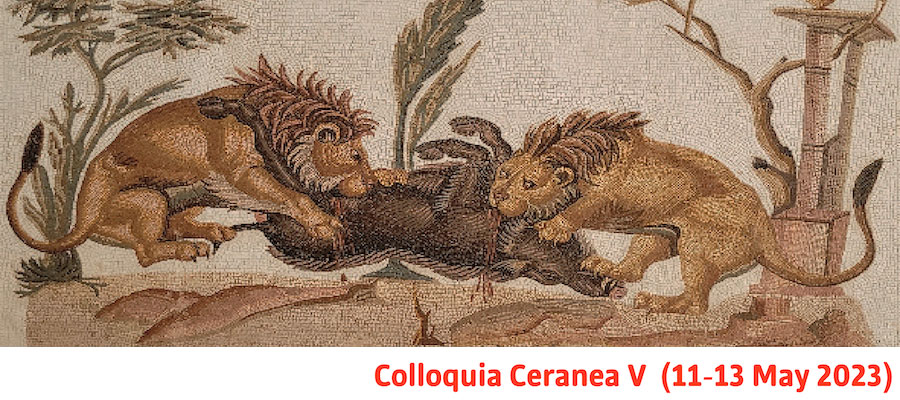Colloquia Ceranea V, University of Lodz, May 11–13, 2023
The fifth edition of the international scholarly conference Colloquia Ceranea, organised by the Waldemar Ceran Research Centre for the History and Culture of the Mediterranean Area and South-East Europe “Ceraneum”, University of Lodz, Poland, will place in a hybrid from 11-13 May 2023.
We would encourage the participants to focus on issues covering the main research fields of the Ceraneum Centre, i.e. food and medicine from Antiquity to the Early Modern Period, history and culture of Byzantium and the Slavic World in the Middle Ages. We are particularly interested in proposals that address the three thematic areas of 2023:
Byzantium in times of turmoil (late 7th - early 8th c.) – new perspectives
Between the last reign of the Heraclian dynasty and the rise of the Isaurians (Syrians), the empire found itself in crisis. Despite its political, military, economic, cultural aspects having been studied and interpreted by many scholars throughout the last century, new research has changed many earlier assumptions, and it is now worth reflecting once again on those pivotal years. Was it a crisis of state or of imperial power? To what extent did it involve the provinces? Did nature and climate changes influence the situation? What were its consequences for the social groups, cities and villages, economy and culture? How were the geopolitical circumstances transformed? Was the political elite entirely replaced and what can be said about the newcomers? These are only a few of the topics we propose to address.
History of medicine and food
The history of ancient and Byzantine medicine is an important branch of knowledge, which predominantly provides us with data on the most common illnesses of that time, their treatments, the patients and the doctors but it can also, if appropriately researched into, reveal aspects of social and economic history.
In the forthcoming Colloquia Ceranea we welcome papers discussing both, purely medical issues as well as those inspired by the non-medical related data found in medical writings, e.g.
- The reception of Galen’s output in Byzantium and beyond the Greco-Roman world;
- Ancient medical knowledge preserved in Byzantine medical treatises;
- Ancient and Byzantine pharmacopoeia;
- Baths and bathing in ancient and Byzantine therapeutic procedures;
- Women in the light of ancient and Byzantine medical treatises;
- Everyday life reflected in ancient and Byzantine medical treatises;
- Ancient and Byzantine medical treatises as a source of knowledge on social disparities.
We are also looking forward to talks linking medicine and food history (e.g. dietetics or food therapy). Furthermore, we intend to introduce a debate on everyday foodstuffs and food taboos in the ancient and Byzantine Mediterranean in the context of literary sources (e.g. medical, culinary, agronomic, etc.) and archaeological materials.
Religious culture, identity and diversity
The Byzantine and Slavic worlds provide a wealth of fascinating examples to explore the social manifestations of religious identity and diversity. Questions of faith, dogma and piety were at the heart of medieval people's concerns. Contact with people having alternative beliefs or practises gave rise to a range of reactions: building bridges or walls. When we follow these reactions in the historical plane: we find debates and tumults; persecutions, periods of tolerance or unity-building. The literary manifestations of these contacts are also noteworthy: sermons that exploited fear or disgust of strangers to build group cohesiveness, sharp polemics or emotionally neutral descriptions. The Colloquia Ceranea primarily hosts scholars dealing with heresies, polemics, monastic culture and its literature, but we remain open to scholars working on other aspects of religiosity: liturgy, sacred architecture, pilgrimage movements, ecclesiastical administration, the development of theology and the transformation of religious writing: hagiography, homiletics, etc.
We await papers discussing other research fields, such as:
- material culture and everyday life;
- historical and political geography;
- historiography;
- peace and war studies;
- society, mores and social norms;
- education;
- language;
- art and visual culture;
- political culture and ideology;
- the state and its organization.
Proposals of a thematic group (or thematic groups) organised around one specific topic (i.e. thematic panels) and proposals for individual papers will both be accepted.
